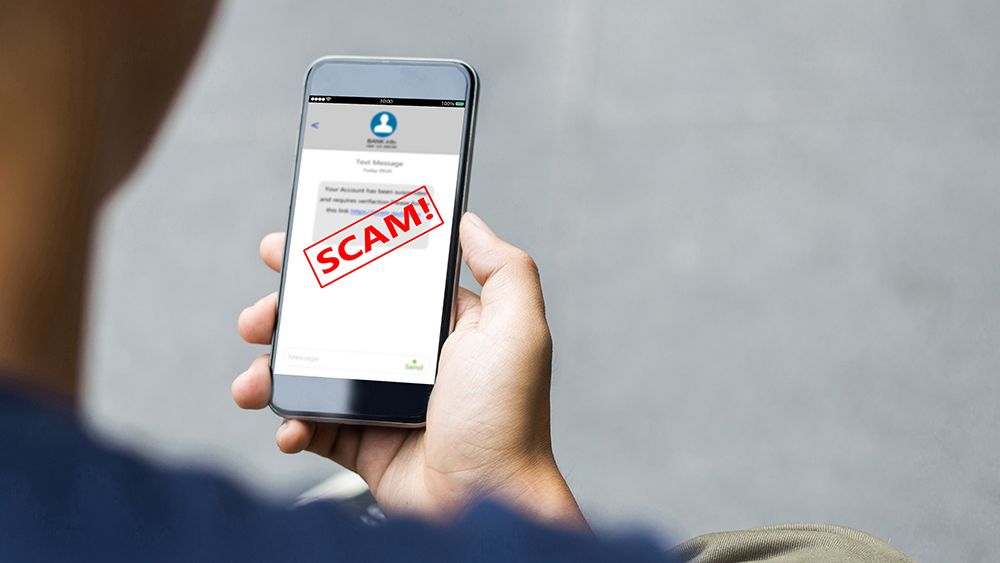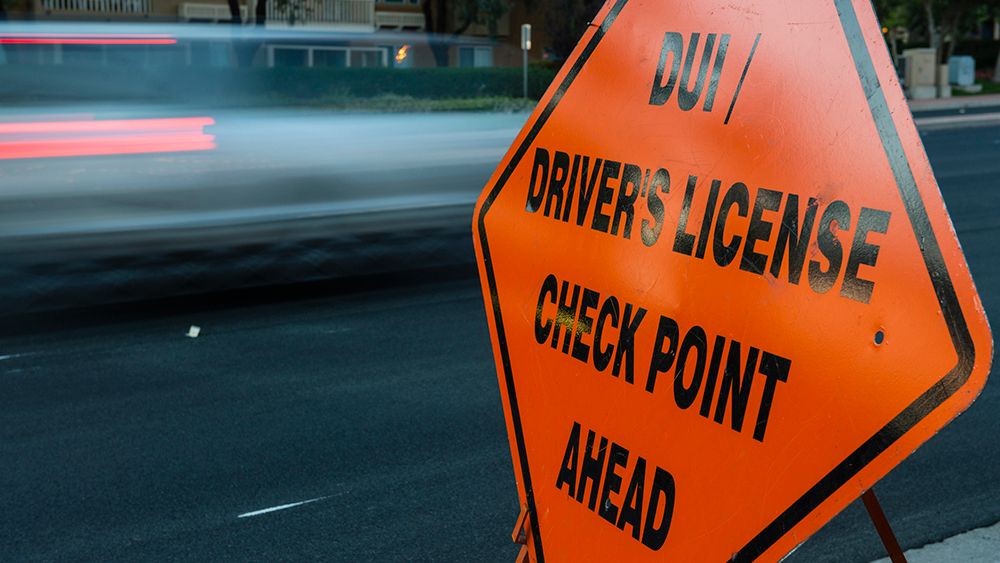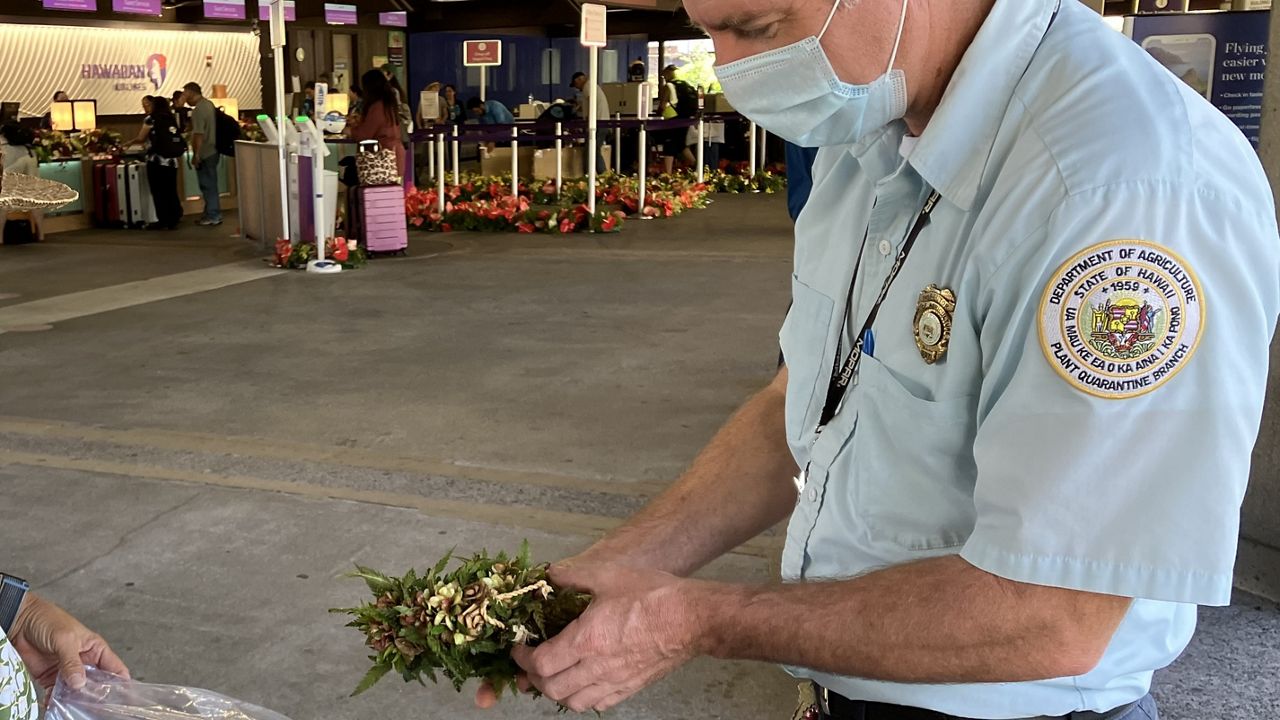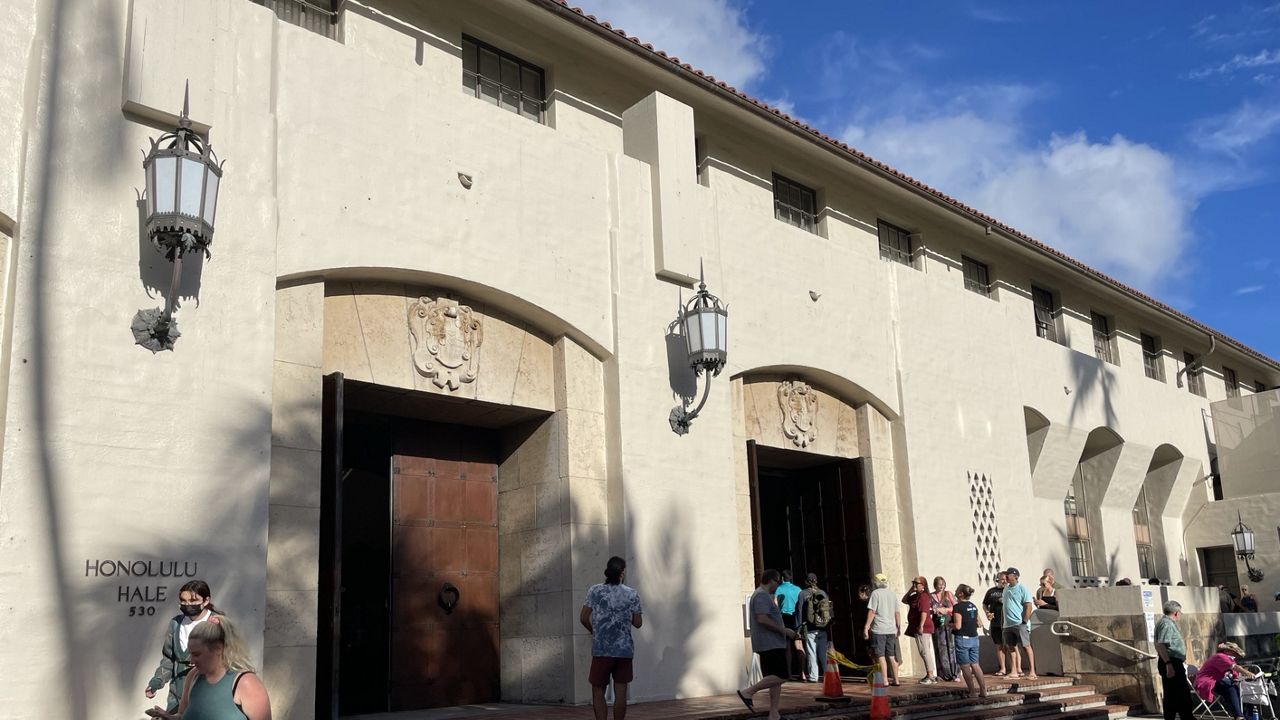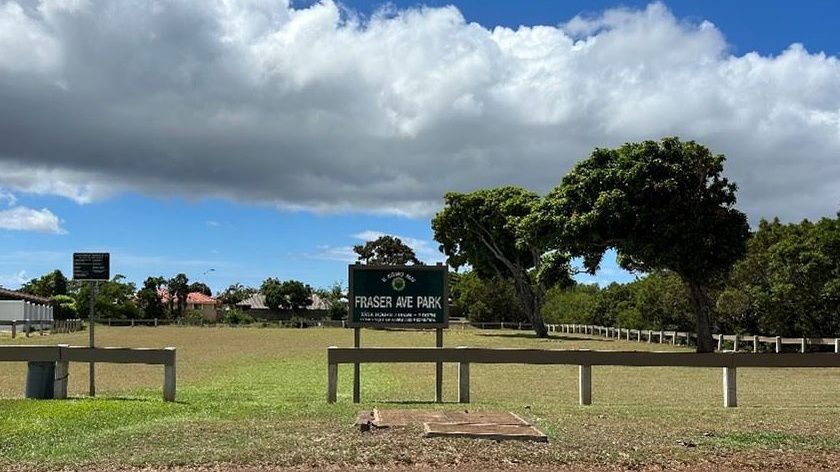Editor's note: This article is part of a series of end-of-year roundups that Spectrum News Hawaii will publish during the month of December. We hope you enjoy these reflections on local news in 2024.
All year long, Spectrum News Hawaii has been covering scams that Hawaii residents are falling victim to in an effort to help others better prepare and hopefully prevent themselves from becoming a victim too. From selling fake tickets for the Honolulu Zoo to pretending to be Attorney General investigators, it seems like scammers are getting more inventive and aggressive in their tactics. Here is a look back at some of this year’s scams.
1. Honolulu Zoo warns of scam involving the sale of fake tickets
In February, Honolulu Zoo officials warned the public about an online scam that involved selling fake tickets at a discounted price.
The scam attempted to trick people into thinking they were buying discounted tickets for the Honolulu Zoo’s 40th anniversary and that the tickets would be valid for one year.
The Honolulu Zoo received several phone calls about the scam, which was first spotted on social media. The scammers used an authentic-looking website to lure people into purchasing the fake tickets. Zoos across the county reported similar scams targeting their patrons.
Officials said tickets can only be purchased at the zoo’s front entrance and urged the public to use HonoluluZoo.org when looking for zoo information.
2. Kauai police warn residents of cryptocurrency phone scam
The Kauai Police Department sent an alert in June about con artists posing as law enforcement officials and calling to solicit money.
The phone scam involves scammers calling residents saying they have a warrant for the resident’s arrest and the only way to avoid it is to pay a fine in the form of cryptocurrency.
“Any such calls should be treated with suspicion. Refrain from disclosing your credit card details or any personal information,” said Assistant Chief Kalani Ke in a news release. “It’s crucial to report such incidents to the Kauai Police Department, and remember that law enforcement agencies will never call you to demand payment of any kind.”
Called “spoofing,” scammers may manipulate the phone number shown on caller ID to make it seem as if the call is coming from a government agency, though it is not. They may also use real information about the victim to make the call appear credible.
3. Attorney General warns about scammers impersonating investigators
Scammers are calling Hawaii residents, pretending to be Attorney General investigators and saying they can avoid being arrested if they quickly pay a fine, according to the AG’s office.
In March and early April, people reported receiving calls from scammers claiming to be agents with the AG’s Investigation Division, according to a news release.
The callers claim the people are being criminally investigated and can avoid being arrested if they quickly pay a fine via a money transfer phone app.
The scammers sometimes use the real names of state employees and spoof real Department of Attorney General phone numbers.
“Law enforcement agencies will not call to solicit any form of payment electronically, or by phone,” said Attorney General Anne Lopez in the news release. “The best thing you can do is hang up the phone and report the encounter.”
4. Maui County warns public of Section 8 housing voucher scam
The Maui County Department of Housing and Human Concerns warned the public in June about a scam claiming to assist individuals with Section 8 housing vouchers.
According to county officials, the scam is being posted by “Section 8 Housing” on social media platforms. It claims that Section 8 will “open the waitlist by accepting applications from May 22 to June 15” and that families can use vouchers to purchase a home and receive monthly assistance to meet homeownership costs. It also claims applications will be reviewed in two weeks with no year-long waitlists.
Officials encourage the public to flag and report the scam to social media platforms hosting the information.
“This prank is especially cruel, so we appreciate people getting the word out that these Section 8 claims are not valid,” said County Department of Housing and Human Concerns Director Lori Tsuhako in a news release.
5. Kauai police warn the public about counterfeit jewelry scam
The Kauai Police Department sent a release in July warning the public about a jewelry scam.
The KPD investigated incidents in which people appearing to be foreign nationals approached residents in public spaces, offering to sell them counterfeit jewelry.
According to KPD, these deceitful activities were similar to incidents that occurred in 2022.
During the previous scam, KPD apprehended four male suspects who were selling counterfeit jewelry.
The suspects told victims they sold rare or antique pieces at significantly reduced prices, targeting them in public places and residential areas. The suspects said they were visitors in financial distress, but the victims later discovered the jewelry was fake.
KPD said reports indicate similar jewelry scams are also taking place on neighbor islands, demonstrating that the criminal activity is spreading throughout the state.
6. Real estate scam convinces victim they are investing in property with Jason Momoa
The Hawaii Department of Commerce and Consumer Affairs alerted the public in November to a real estate scam, which convinced a victim they were investing in property with Jason Momoa.
The DCCA said in a release there has been “a recent wave of real estate investor scams.” Scammers are sending deceptive letters, claiming to be government entities and providing individuals and businesses with false market assessments to convince them to spend money on non-existent investments.
One letter tricked its victim by claiming to be from a fake government entity, “Hawaii Real Estate Department and Agencies,” and included a forged signature from DCCA Director Nadine Ando. It also used letterhead with the state of Hawaii seal, without authorization, and featured the logo of a fake real estate investment company, “Welfare Estate,” which said it offers investment opportunities, but the properties don’t exist.
On top of all this, the letter led the victim to believe they were investing in real estate alongside Momoa, the "Aquaman" star, which would result in immediate and large financial returns.
“It has come to my attention that scammers are using my name to promote fake real estate opportunities,” Momoa said in the news release. “I want to assure everyone that I am not associated with these schemes and have no partnership with any real estate firms. Please remain cautious and verify any offers you receive. Stay informed and look out for one another.”
In October, the Maui Police Department warned residents about a recurring scam involving spoofed callers claiming to be officers. The following month, the Kauai Police Department and the Hawaii Island Police Department both warned of a similar scam.
The caller tells the person who answers the phone that there is a warrant, missed jury duty, or some other legal sanction pending against them, then demands immediate payment via cryptocurrency, online payment apps such as CashApp or Venmo, credit cards or gift cards.
MPD said in a release that no law enforcement or government agency will attempt to “clear up” warrants or other legal sanctions over the phone and they will not request financial information over the phone.
8. Hawaiian Electric warns of scams targeting customers
In November, Hawaiian Electric warned the public about scammers targeting unsuspecting customers.
HECO said the “late payment” scam is the most prevalent: Scammers threaten disconnection unless payment is made immediately via prepaid debit cards, gift cards, or cryptocurrency.
However, HECO received seven reports over the summer from customers about a new type of scam: Scammers claimed to be from HECO, provided a “work order” number, and instructed the customer to contact a “field technician” using an 800 number. Once the number is called, the scammers demand payment for a repair and threaten, if they are not paid immediately, to disconnect power.
The scammers target a wide variety of individuals and businesses, but HECO said they have noticed a trend of scammers using real estate ads or listings to find targets.
“They were saying that unless we call back and pay for repairs, they were going to terminate our service,” said Richard Nakatsu, a property manager with HI Five Realty who received a scam call on June 17. “They’re spoofing the Hawaiian Electric number.”
Nakatsu spotted the scam, but HECO said recently a residential customer who received the same type of call paid the scammers $1,498 through Zelle, a money transfer service offered through banking apps.
9. Scammers target dentists, other medical professionals
The Department of Commerce and Consumer Affairs issued a warning in November about phone scammers contacting licensed dental professionals, while impersonating staff at the Department of Health and Human Services. The scammers, who often use Caller ID spoofing to make it appear as if the call is coming from a legitimate government agency, falsely threaten that they are investigating their professional license in order to extract personal information.
The recent reports relate to dental professionals, but earlier in the year, other medical professionals, including nurses and pharmacists, were targeted.
DHHS does not have the authority to suspend or revoke professional licenses, according to a news release. Instead, the 52 licensing boards, commissions and programs that are affiliated with the DCCA can discipline the licensee after an investigation. However, the boards, commissions and programs do not conduct the investigations. The Regulated Industries Complaint Office, which is part of the DCCA, conducts independent investigations into licensees. RICO sends all correspondence on official letterhead and does not ask for personal information over the phone, solicit wire transfers, or take action against a licensee.
DCCA encouraged the public to remain vigilant when receiving calls from state officials or government agencies and said they will never solicit money or threaten arrest. The state agency recommended hanging up immediately if a call seems suspicious. To verify the caller's legitimacy, contact the agency directly. (Here is a list of legitimate phone numbers.)
10. The Board of Water Supply alerts residents to utility scams
The Board of Water Supply reminded residents, including utility customers, to be extra vigilant of utility scams that tend to increase during the holidays.
“Scammers don’t take the holidays off and they target all age groups,” said BWS Manager and Chief Engineer Ernie Lau in a release. “It is essential to stay aware and take the necessary steps to safeguard yourself.”
BWS advises customers to protect themselves and be alert for these signs of a scam:
- BWS will never call to demand bill payment under immediate threat of disconnection of water service.
- BWS does not accept payment via Bitcoin, prepaid cards, or third-party payment apps, such as Cash App, PayPal, Venmo, and Zelle.
- If you are approached by someone claiming to be from the BWS, verify their credentials. They should wear an official BWS uniform and driving a clearly marked vehicle.
- Be cautious of emails urging you to click an embedded link or attachment to pay a bill. Online bill payment is done through the BWS payment portal on the BWS website.
- Scammers often impersonate trusted phone numbers and agencies. If you are in doubt of the authenticity of the call, hang up and call BWS at 808-748-5000 and press option “0.”
Michelle Broder Van Dyke covers the Hawaiian Islands for Spectrum News Hawaii. Email her at michelle.brodervandyke@charter.com.





